British Military Quotes & Sayings
Enjoy reading and share 55 famous quotes about British Military with everyone.
Top British Military Quotes

Recognising that an ostentatious cult of heroism and state service served an important propaganda function for the British elite does not mean, of course, that we should dismiss it as artificial or insincere. All aristocracies have a strong military tradition, and for many British patricians the protracted warfare of the period was a godsend. It gave them a job, and, more important, a purpose, an opportunity to carry out what they had been trained to do since childhood: ride horses, fire guns, exercise their undoubted physical courage and tell other people what to do. — Linda Colley

The general's staff is a handpicked collection of killers, spies, geniuses, patriots, political operators and outright maniacs. There's a former head of British Special Forces, two Navy Seals, an Afghan Special Forces commando, a lawyer, two fighter pilots and at least two dozen combat veterans and counterinsurgency experts. They jokingly refer to themselves as Team America, taking the name from the South Park-esque sendup of military cluelessness, and they pride themselves on their can-do attitude and their disdain for authority. — Michael Hastings

This is what songs do, even dumb pop songs: they remind us that emotions are not an inconvenient and vaguely embarrassing aspect of the human enterprise but its central purpose. They make us feel specific things we might never have felt otherwise. Every time I listen to "Sunday Bloody Sunday," for instance, I feel a pugnacious righteousness about the fate of the Irish people. I hear that thwacking military drumbeat and Bono starts wailing about the news he heard today and I'm basically ready to enlist in the IRA and stomp some British Protestant Imperialist Ass, hell yes, bring on the fucking bangers and mash and let's get this McJihad started. — Steve Almond
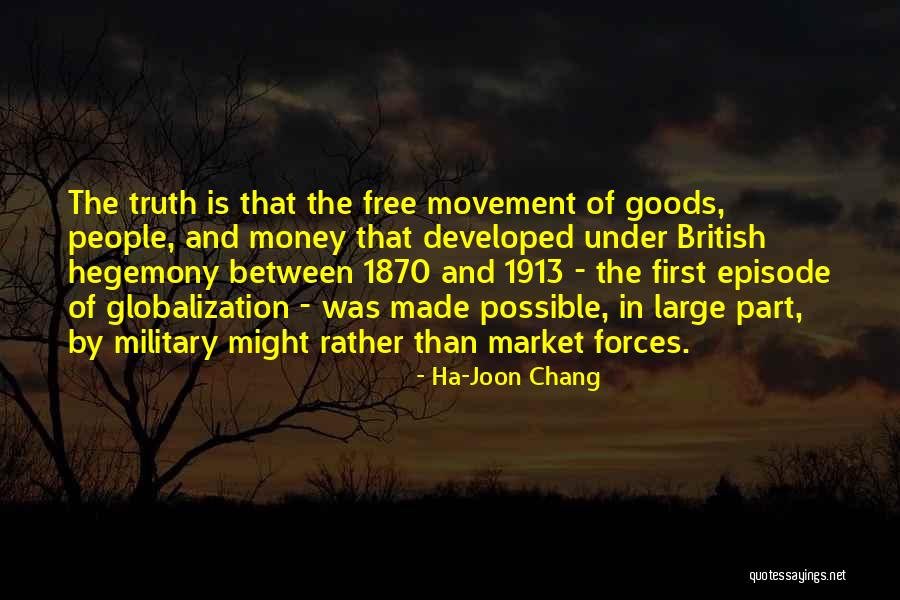
The truth is that the free movement of goods, people, and money that developed under British hegemony between 1870 and 1913 - the first episode of globalization - was made possible, in large part, by military might rather than market forces. — Ha-Joon Chang
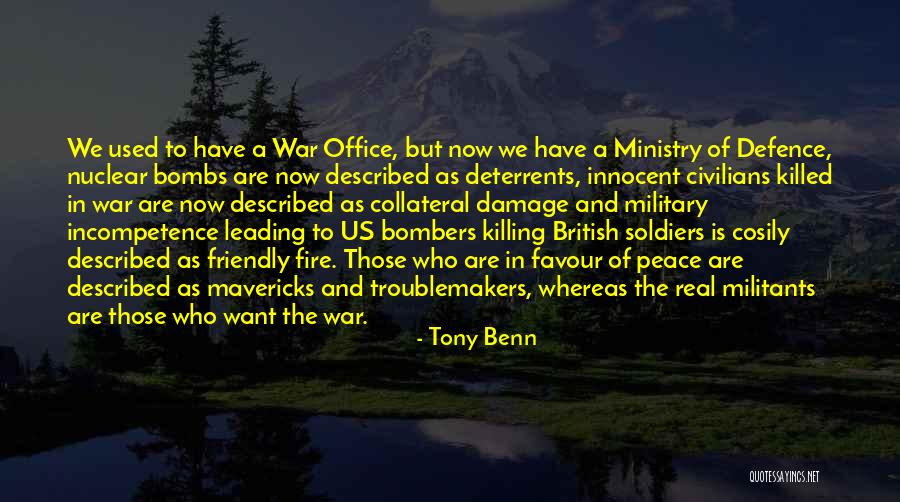
We used to have a War Office, but now we have a Ministry of Defence, nuclear bombs are now described as deterrents, innocent civilians killed in war are now described as collateral damage and military incompetence leading to US bombers killing British soldiers is cosily described as friendly fire. Those who are in favour of peace are described as mavericks and troublemakers, whereas the real militants are those who want the war. — Tony Benn
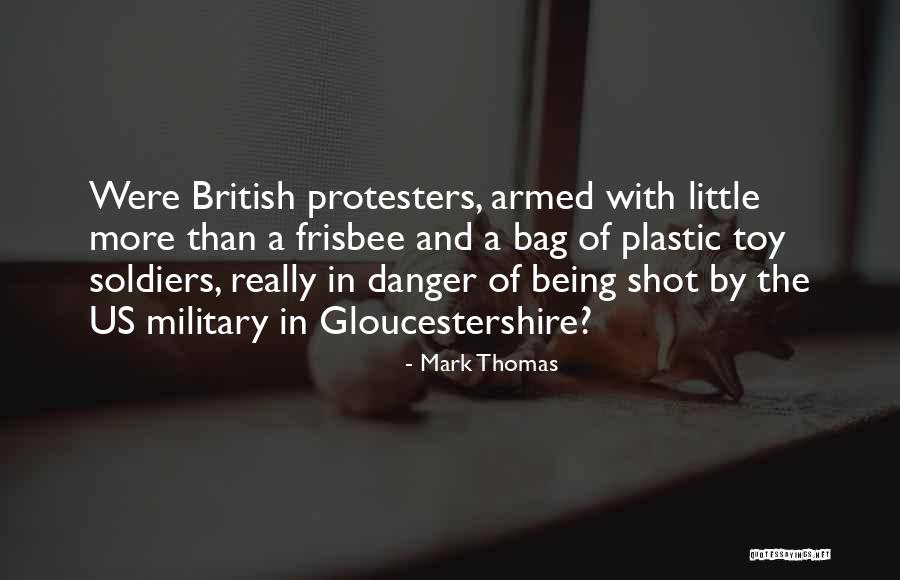
Were British protesters, armed with little more than a frisbee and a bag of plastic toy soldiers, really in danger of being shot by the US military in Gloucestershire? — Mark Thomas

The situation in the West Bank and Gaza involves a military occupation amid urban guerrilla warfare, analogous to the British security measures in Northern Island, that hopefully will end with a cease-fire. — Jack Schwartz

I find a difference in British spy fiction and American spy fiction. In the American version, it's more militaristic, partly because the CIA has more of the military makeup. Whereas MI6 is more of a cerebral, intelligence-based, relationship-based service, i.e., all they do is recruit people to get information out of them. — Charles Cumming

By the end of World War II Great Britain was financially and politically exhausted. This weakness was exploited by Mohandas Gandhi and his cohorts in India during their own struggle against British rule. Nigerian veterans from different theaters of the war had acquired certain skills - important military expertise in organization, movement, strategy, and combat - during their service to the king. Another proficiency that came naturally to this group was the skill of protest, which was quickly absorbed by the Nigerian nationalists. — Chinua Achebe

Contrary to received wisdom, the British are not an insular people in the conventional sense - far from it. For most of their early modern and modern history, they have had more contact with more parts of the world than almost any other nation - it is just that this contact has regularly taken the form of aggressive military and commercial enterprise. — Linda Colley

Prime Minister to the Emperor of Ethiopia 9 May 41 It is with deep and universal pleasure that the British nation and Empire have learned of Your Imperial Majesty's welcome home to your capital at Addis Ababa. Your Majesty was the first of the lawful sovereigns to be driven from his throne and country by the Fascist-Nazi criminals, and you are now the first to return in triumph. Your Majesty's thanks will be duly conveyed to the commanders, officers, and men of the British and Empire forces who have aided the Ethiopian patriots in the total and final destruction of the Italian military usurpation. His Majesty's Government look forward to a long period of peace and progress in Ethiopia after the forces of evil have been finally overthrown. — Winston S. Churchill

The Nazis' entrance upon the European stage did not, at first, alarm the British. After all, under the Versailles treaty,the size of the German army and navy was limited and the defeated country was forbidden to maintain air force. The wake-up bell began sounding only when, in March 1935, Hitler renounced the treaty and declared that his country would indeed rebuild its military. The following year, when Germany reoccupied the Rhineland, Britons were unsettled to learn that his army was already three times the legal size ad that his air force, or Luftwaffe, would surpass their own. — Madeleine K. Albright

Here was a manifestation of a huge, historic British folly, repeated over many centuries including the twenty-first: the adoption of gesture strategy, committing small forces as an earnest of good intentions, heedless of their gross inadequacy for the military purpose at hand. — Max Hastings

In 1789 the French rebelled and found an emperor. The Americans found their freedom from the British and enslaved the Africans. The Arab Spring bloomed and the military and the jihadists seized power. The internet gave us all the power of speech, and what did we discover? That victory goes to he who shouts the loudest, and that reason does not sell. — Claire North
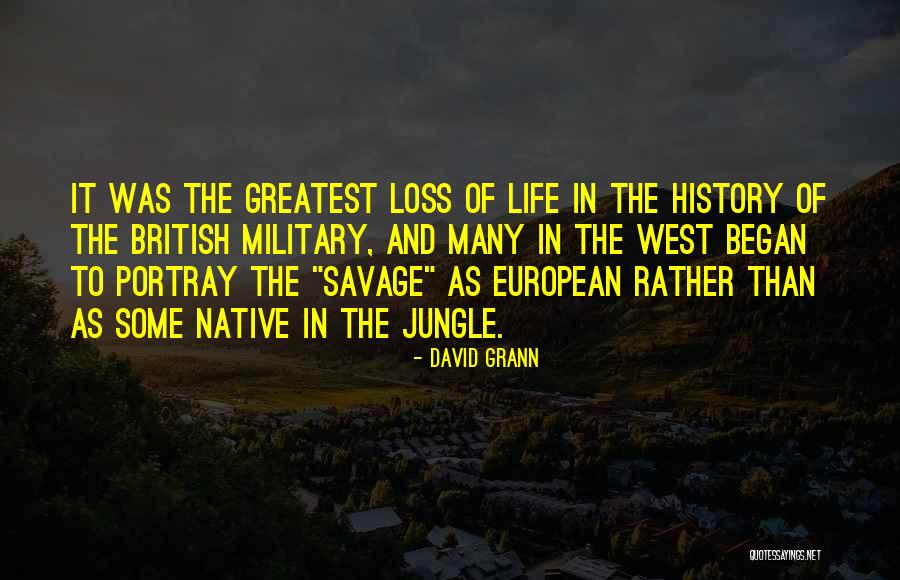
It was the greatest loss of life in the history of the British military, and many in the West began to portray the "savage" as European rather than as some native in the jungle. — David Grann
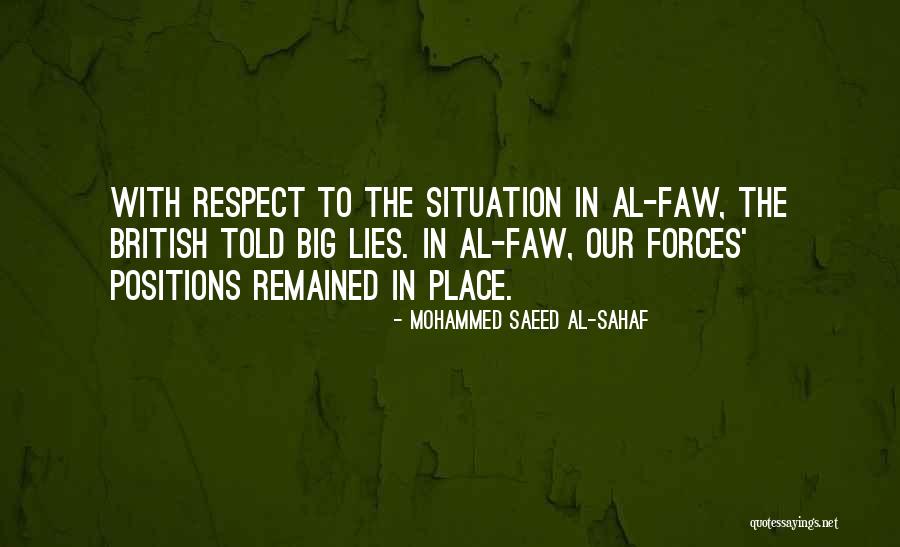
With respect to the situation in Al-Faw, the British told big lies. In Al-Faw, our forces' positions remained in place. — Mohammed Saeed Al-Sahaf
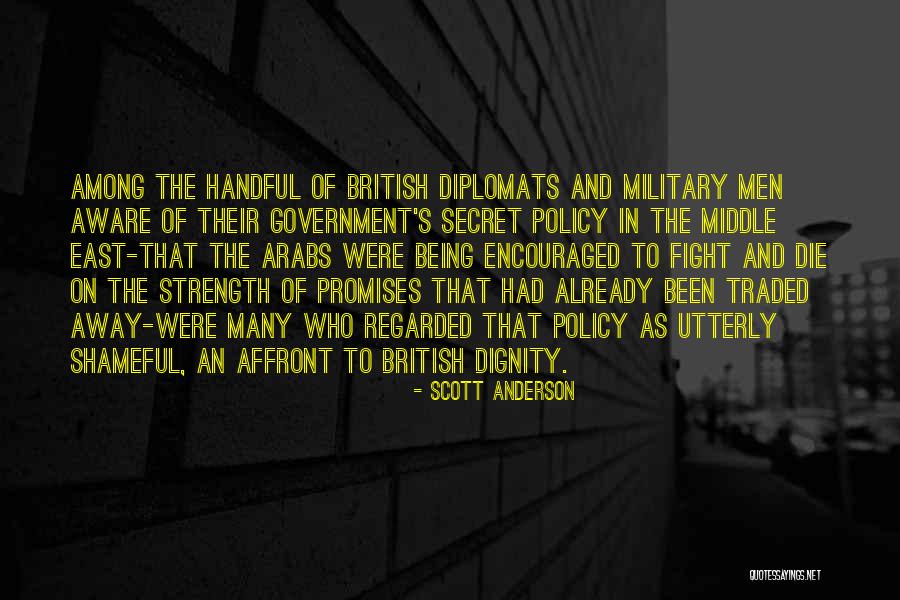
Among the handful of British diplomats and military men aware of their government's secret policy in the Middle East-that the Arabs were being encouraged to fight and die on the strength of promises that had already been traded away-were many who regarded that policy as utterly shameful, an affront to British dignity. — Scott Anderson
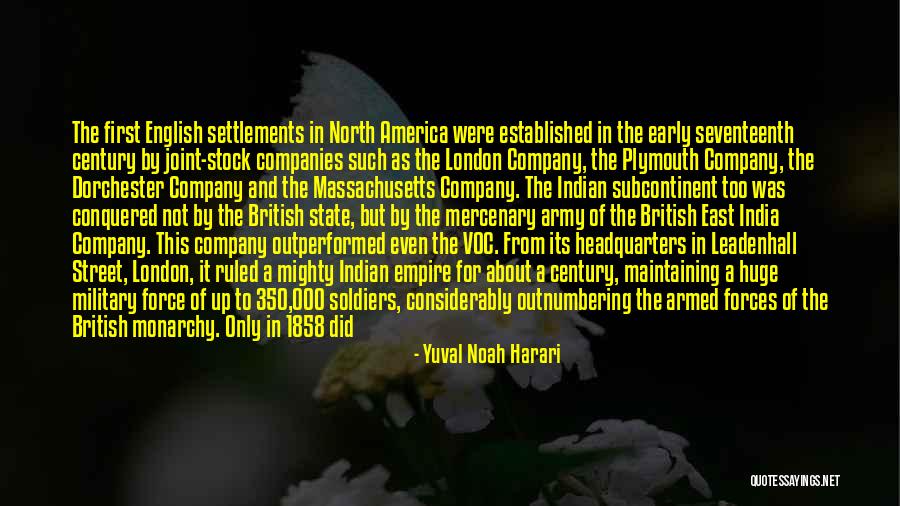
The first English settlements in North America were established in the early seventeenth century by joint-stock companies such as the London Company, the Plymouth Company, the Dorchester Company and the Massachusetts Company. The Indian subcontinent too was conquered not by the British state, but by the mercenary army of the British East India Company. This company outperformed even the VOC. From its headquarters in Leadenhall Street, London, it ruled a mighty Indian empire for about a century, maintaining a huge military force of up to 350,000 soldiers, considerably outnumbering the armed forces of the British monarchy. Only in 1858 did the British crown nationalise India along with the company's private army. Napoleon made fun of the British, calling them a nation of shopkeepers. Yet these shopkeepers defeated Napoleon himself, and their empire was the largest the world has ever seen. — Yuval Noah Harari
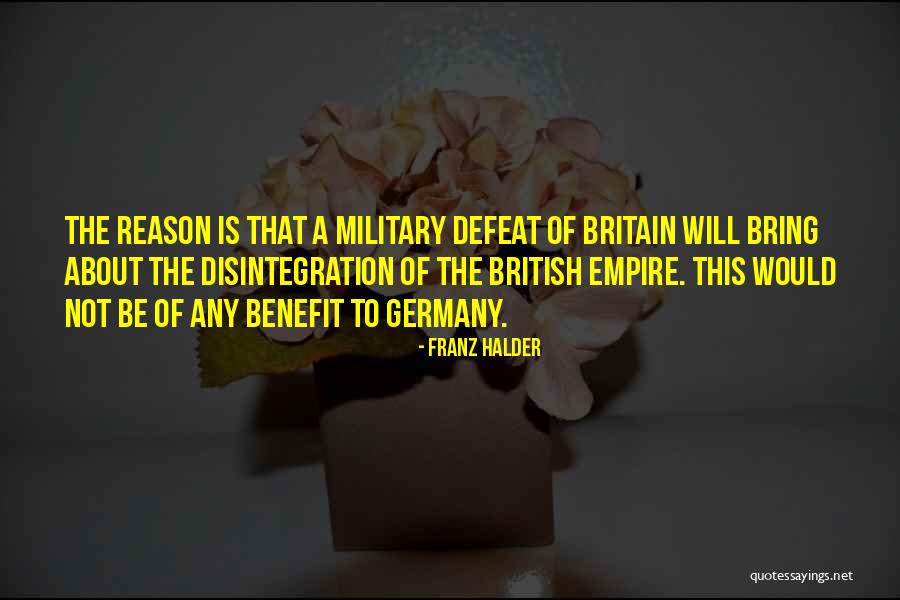
The reason is that a military defeat of Britain will bring about the disintegration of the British Empire. This would not be of any benefit to Germany. — Franz Halder

Thwarted by the British and French on the world stage, Berlin decided in 1913 to concentrate Germany's military objectives in Europe. That year Germany grew into a singularly dangerous continental presence: besieged, paranoid and armed to the teeth. — Paul Ham

If the colonists hadn't rejected British militarism and the massive financial burden of maintaining the British military, America wouldn't exist. — Rachel Maddow

World War II had been such a tremendous success story for this country that the political and military leadership began to assume that they would prevail simply because of who they were. We were like the British at the turn of the 19th century. — Neil Sheehan
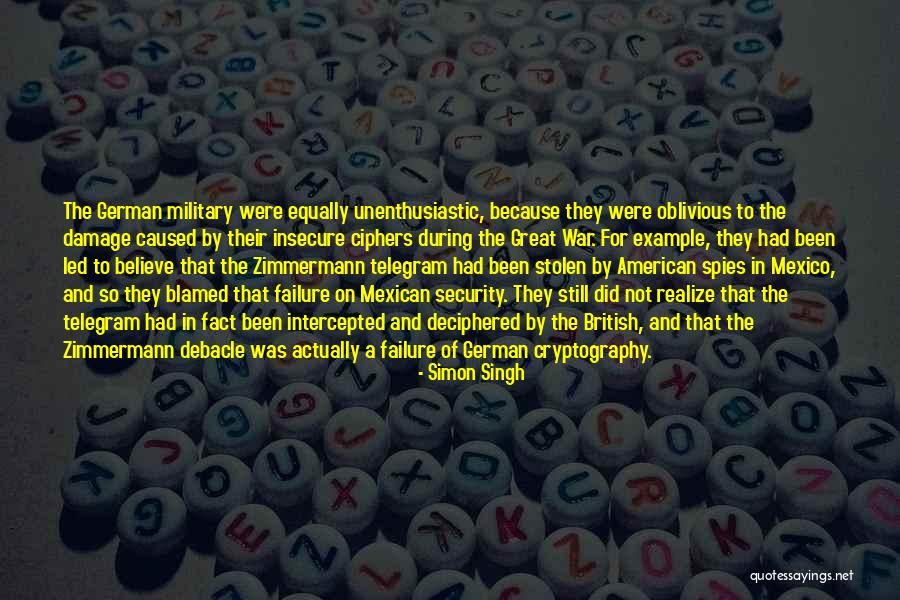
The German military were equally unenthusiastic, because they were oblivious to the damage caused by their insecure ciphers during the Great War. For example, they had been led to believe that the Zimmermann telegram had been stolen by American spies in Mexico, and so they blamed that failure on Mexican security. They still did not realize that the telegram had in fact been intercepted and deciphered by the British, and that the Zimmermann debacle was actually a failure of German cryptography. — Simon Singh
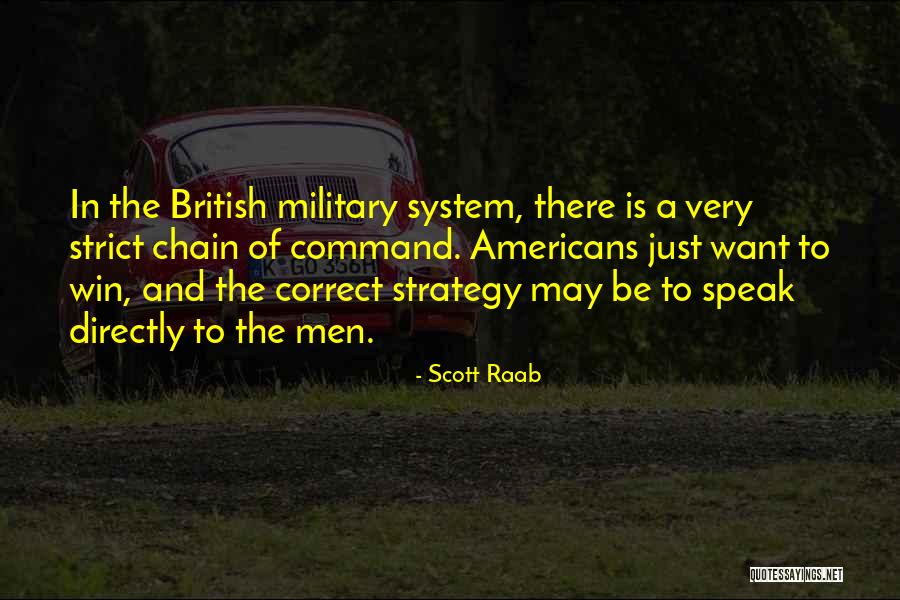
In the British military system, there is a very strict chain of command. Americans just want to win, and the correct strategy may be to speak directly to the men. — Scott Raab
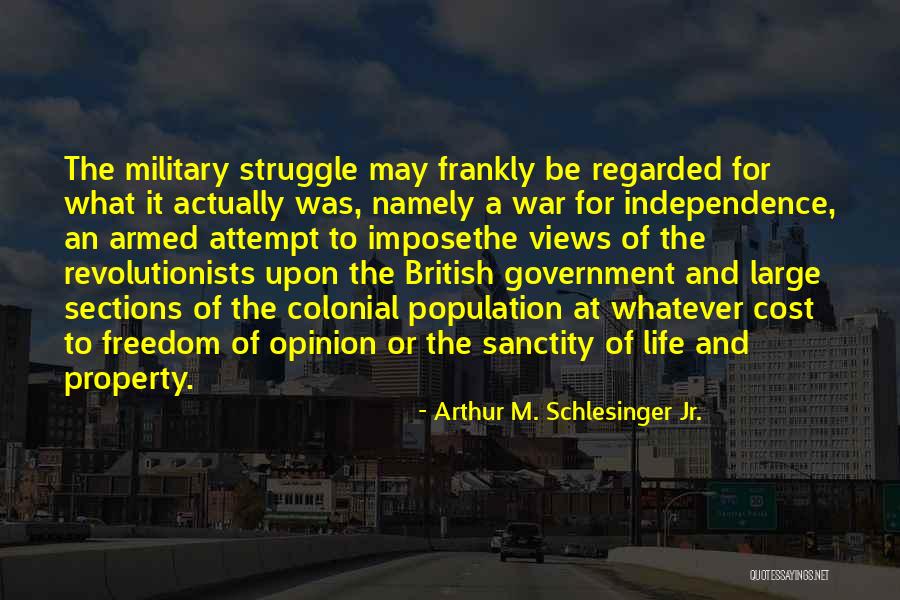
The military struggle may frankly be regarded for what it actually was, namely a war for independence, an armed attempt to imposethe views of the revolutionists upon the British government and large sections of the colonial population at whatever cost to freedom of opinion or the sanctity of life and property. — Arthur M. Schlesinger Jr.

Famines occur under a colonial administration, like the British Raj in India or for that matter in Ireland, or under military dictators in one country after another, like Somalia and Ethiopia, or in one-party states like the Soviet Union and China. — Amartya Sen

four different operators in that unit, working on a shift system, each with his own characteristics," says Nigel West, a British military historian. "And invariably, quite apart from the text, there would be the preambles, and the illicit exchanges. How are you today? How's the girlfriend? What's the weather — Malcolm Gladwell
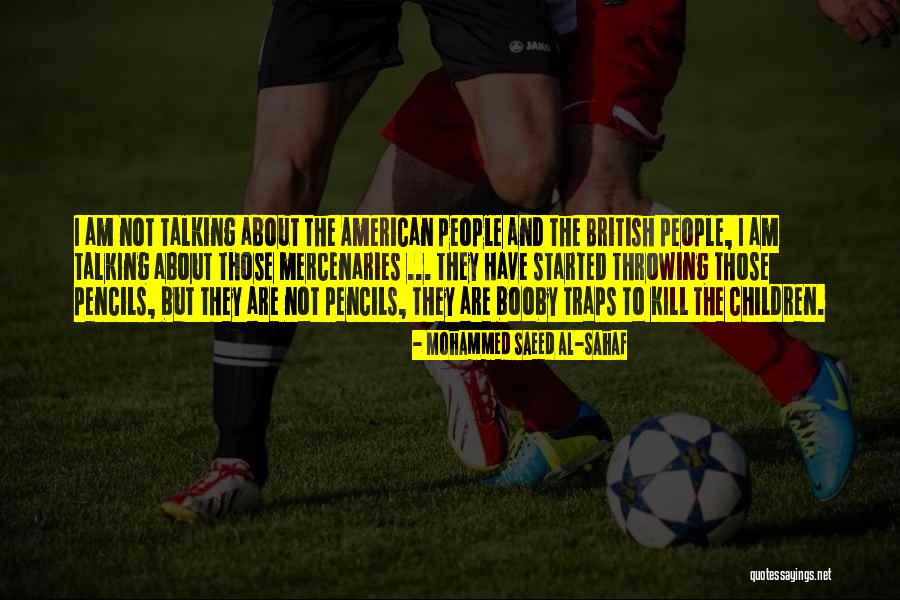
I am not talking about the American people and the British people, I am talking about those mercenaries ... They have started throwing those pencils, but they are not pencils, they are booby traps to kill the children. — Mohammed Saeed Al-Sahaf

Naval heroes are seldom immodest, but soldiers quite often are. It is said of one gallant general that publication of his book was delayed because the printer ran out of capital I's. — John Colville

The British were indeed very far superior to the Americans in every respect necessary to military operations, except the revivified courage and resolution, the result of sudden success after despair. — Mercy Otis Warren
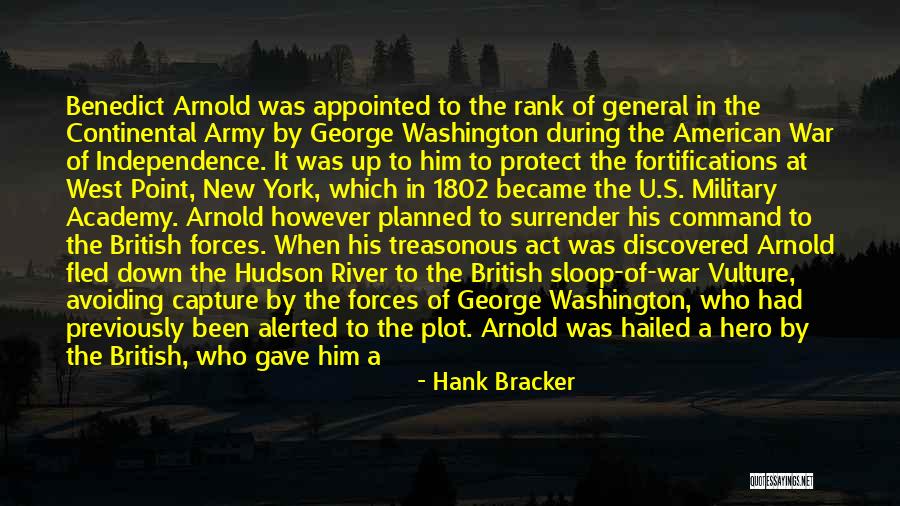
Benedict Arnold was appointed to the rank of general in the Continental Army by George Washington during the American War of Independence. It was up to him to protect the fortifications at West Point, New York, which in 1802 became the U.S. Military Academy. Arnold however planned to surrender his command to the British forces. When his treasonous act was discovered Arnold fled down the Hudson River to the British sloop-of-war Vulture, avoiding capture by the forces of George Washington, who had previously been alerted to the plot. Arnold was hailed a hero by the British, who gave him a commission in the British Army as brigadier general. In the winter of 1782, after the war, he moved to London with his wife where he was received as a hero by King George III. In the United States his name "Benedict Arnold" became synonyms for the words "TRAITOR & TREASON."
Cohorting with a foreign power to overthrow the government or purposely aiding the enemy is an act of Treason! — Hank Bracker

The Australian divisions and the New Zealanders had become what they were to remain for the rest of the war the spearhead of the British Army — John Terraine

This was the period when I used all the influence I had to get the British to abandon their export trade, and as much as possible convert all of their manufacturing facilities to the immediate needs of the war, including civilian, as well as military requirements. — W. Averell Harriman
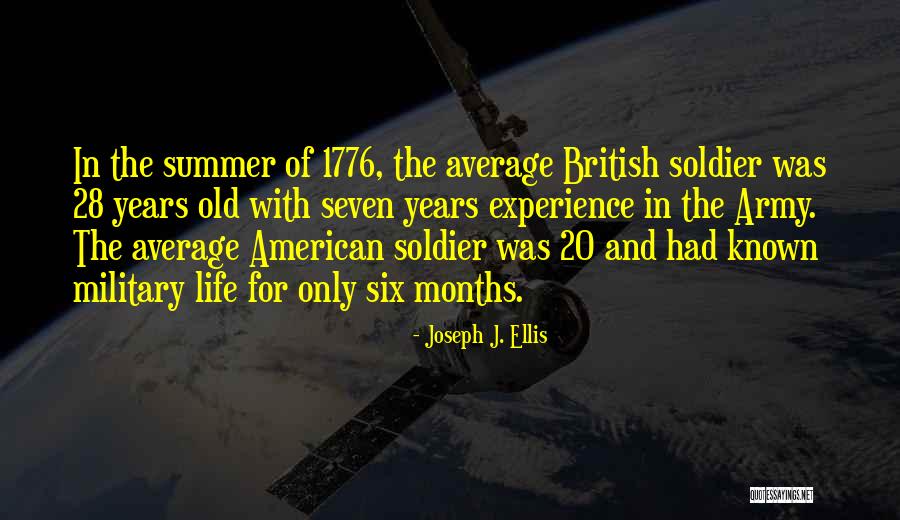
In the summer of 1776, the average British soldier was 28 years old with seven years experience in the Army. The average American soldier was 20 and had known military life for only six months. — Joseph J. Ellis
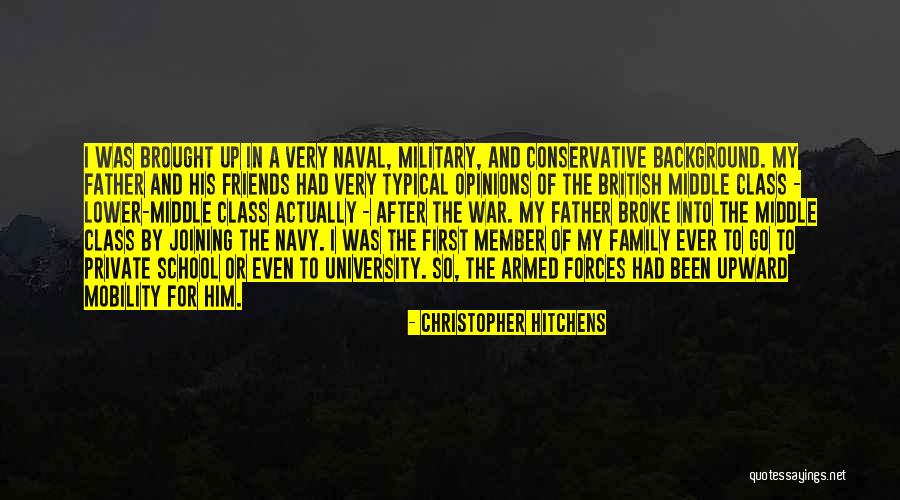
I was brought up in a very naval, military, and conservative background. My father and his friends had very typical opinions of the British middle class - lower-middle class actually - after the war. My father broke into the middle class by joining the navy. I was the first member of my family ever to go to private school or even to university. So, the armed forces had been upward mobility for him. — Christopher Hitchens

The Soviet Union suffered 65 percent of all Allied military deaths, China 23 percent, Yugoslavia 3 percent, the United States and Britain 2 percent each, France and Poland 1 percent each. About 8 percent of all Germans died, compared with 2 percent of Chinese, 3.44 percent of Dutch people, 6.67 percent of Yugoslavs, 4 percent of Greeks, 1.35 percent of French, 3.78 percent of Japanese, 0.94 percent of British and 0.32 percent of Americans. Within the armed forces, 30.9 percent of Germans conscripted into the Wehrmacht died, — Max Hastings
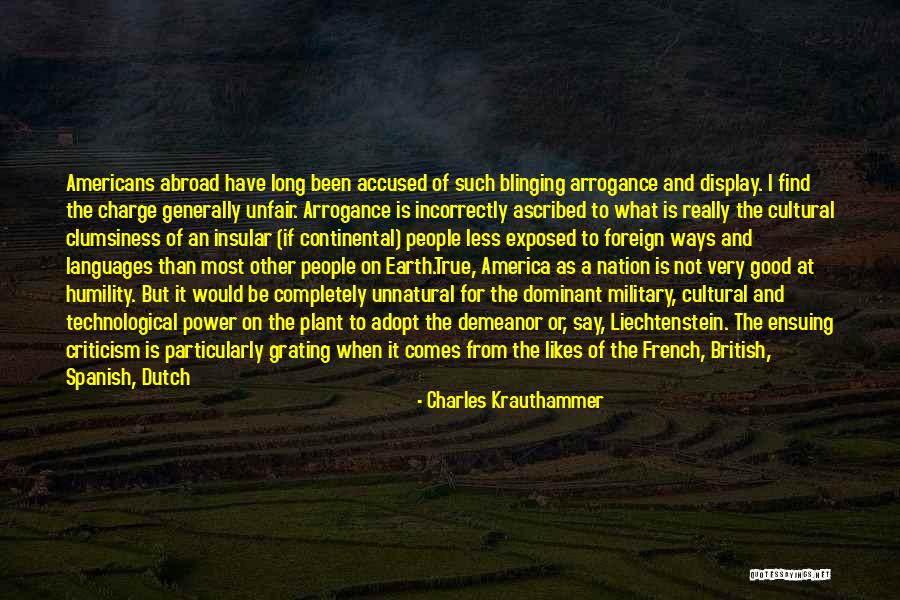
Americans abroad have long been accused of such blinging arrogance and display. I find the charge generally unfair. Arrogance is incorrectly ascribed to what is really the cultural clumsiness of an insular (if continental) people less exposed to foreign ways and languages than most other people on Earth.
True, America as a nation is not very good at humility. But it would be completely unnatural for the dominant military, cultural and technological power on the plant to adopt the demeanor or, say, Liechtenstein. The ensuing criticism is particularly grating when it comes from the likes of the French, British, Spanish, Dutch (there are many others) who just yesterday claimed dominion over every land and people their Captain Cooks ever stumbled upon. — Charles Krauthammer
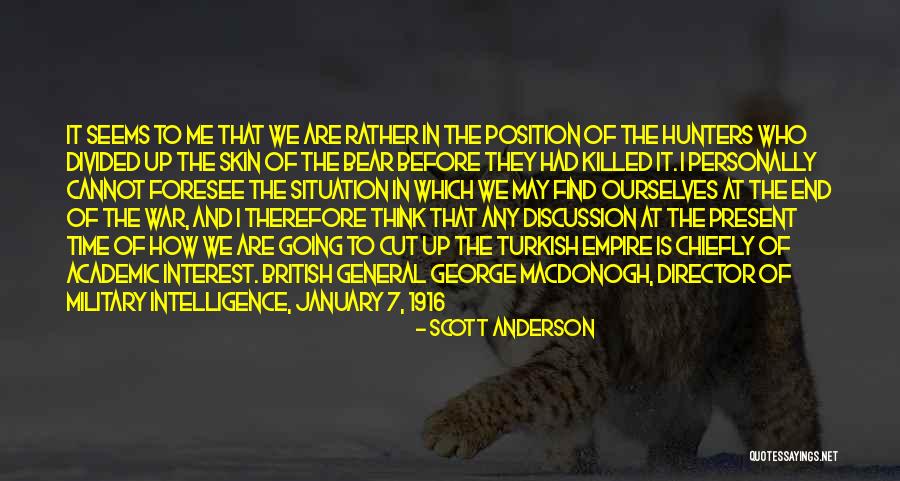
It seems to me that we are rather in the position of the hunters who divided up the skin of the bear before they had killed it. I personally cannot foresee the situation in which we may find ourselves at the end of the war, and I therefore think that any discussion at the present time of how we are going to cut up the Turkish Empire is chiefly of academic interest. BRITISH GENERAL GEORGE MACDONOGH, DIRECTOR OF MILITARY INTELLIGENCE, JANUARY 7, 1916 — Scott Anderson

First Lord of the Admiralty, long enough to engineer what an anti-Churchillian would say was an epic and unparalleled military disaster - a feat of incompetent generalship that made the Charge of the Light Brigade look positively slick. It was an attempt to outflank the stalemate on the Western Front that not only ended in humiliation for the British armed forces; it cost the lives of so many Australians and New Zealanders that to this day their 1915 expedition to Turkey is the number-one source of pom-bashing and general anti-British feeling among Antipodeans. — Boris Johnson
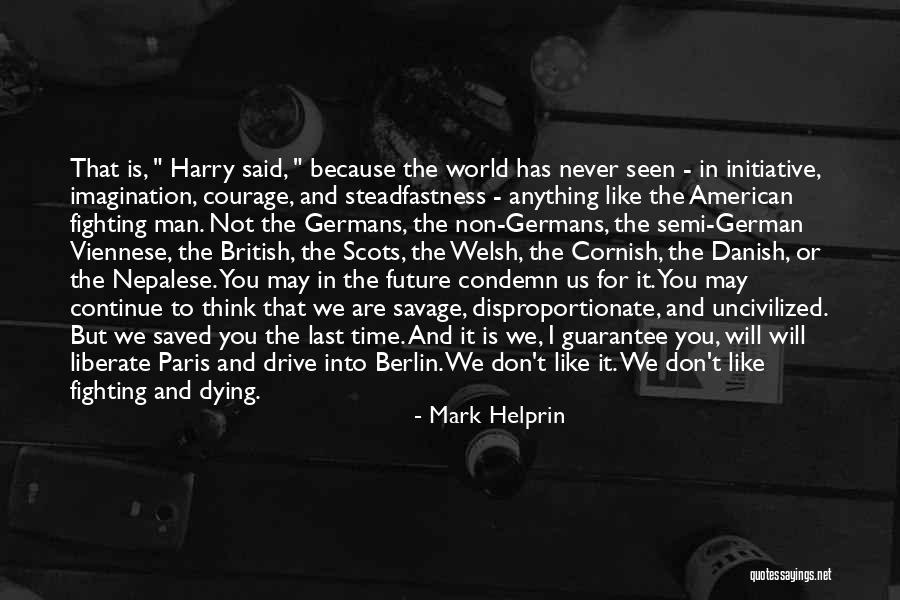
That is, " Harry said, " because the world has never seen - in initiative, imagination, courage, and steadfastness - anything like the American fighting man. Not the Germans, the non-Germans, the semi-German Viennese, the British, the Scots, the Welsh, the Cornish, the Danish, or the Nepalese. You may in the future condemn us for it. You may continue to think that we are savage, disproportionate, and uncivilized. But we saved you the last time. And it is we, I guarantee you, will will liberate Paris and drive into Berlin. We don't like it. We don't like fighting and dying. But ... when it comes time for that, we are facile princeps, and will always be. We were born for it. The terrain of the New World educated us in it. That in America every man is a king assures us of it. — Mark Helprin

The Irish have played a part in every military conflict on American soil since the founding of the republic. Donegal-born Richard Montgomery was the first American general to lose his life in the Revolutionary War. In fact, one British major general at the time told the House of Commons that "half the rebel Continental Army was from Ireland. — Rashers Tierney

My grandfather had come over as a member of the czarist army, to make an arms deal with the British government. Being a blinkered military man, he was unaware that the Russian Revolution was about to take place. — Helen Mirren
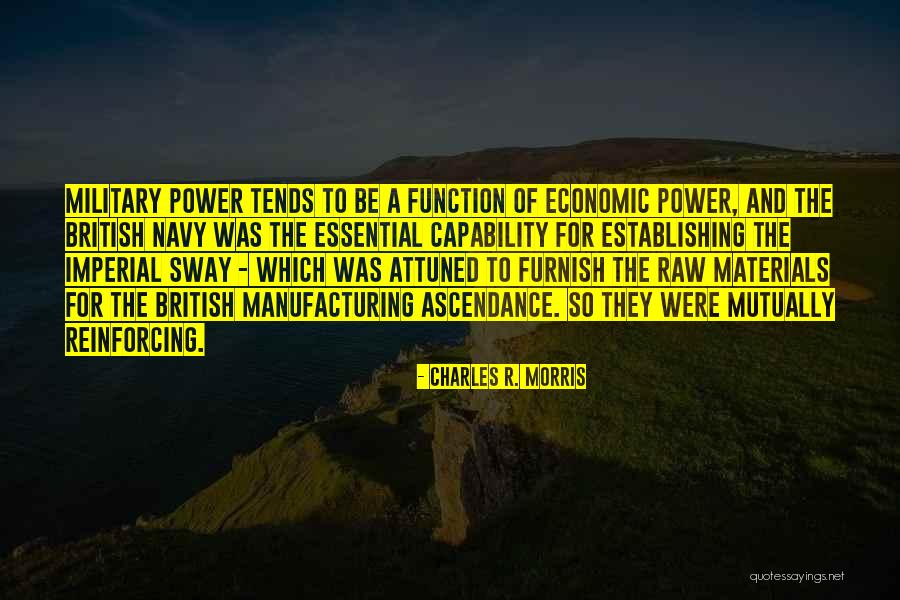
Military power tends to be a function of economic power, and the British Navy was the essential capability for establishing the imperial sway - which was attuned to furnish the raw materials for the British manufacturing ascendance. So they were mutually reinforcing. — Charles R. Morris
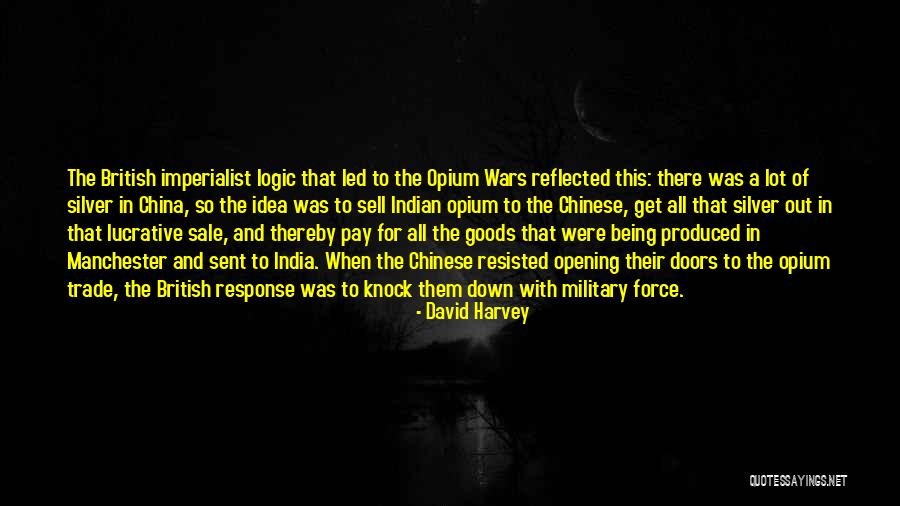
The British imperialist logic that led to the Opium Wars reflected this: there was a lot of silver in China, so the idea was to sell Indian opium to the Chinese, get all that silver out in that lucrative sale, and thereby pay for all the goods that were being produced in Manchester and sent to India. When the Chinese resisted opening their doors to the opium trade, the British response was to knock them down with military force. — David Harvey
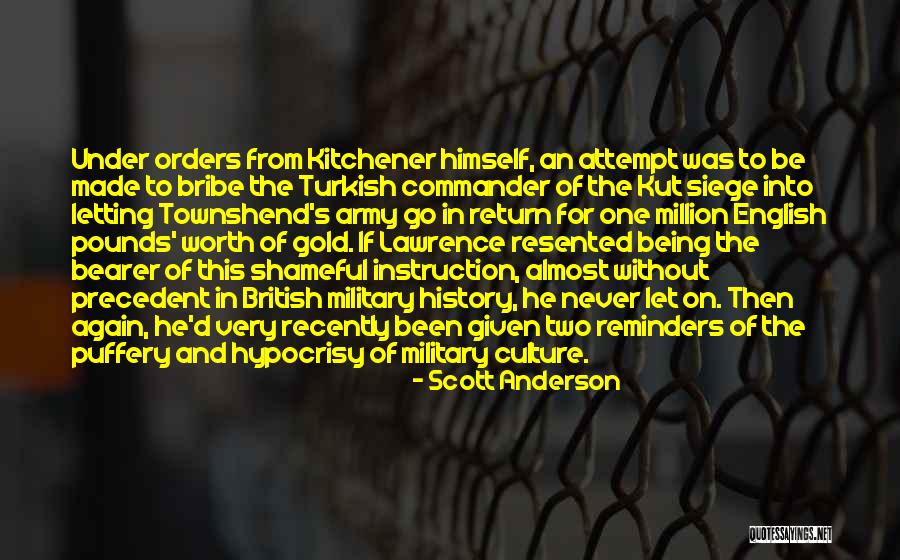
Under orders from Kitchener himself, an attempt was to be made to bribe the Turkish commander of the Kut siege into letting Townshend's army go in return for one million English pounds' worth of gold. If Lawrence resented being the bearer of this shameful instruction, almost without precedent in British military history, he never let on. Then again, he'd very recently been given two reminders of the puffery and hypocrisy of military culture. — Scott Anderson

When you are covering a life-or-death struggle, as British reporters were in 1940, it is legitimate and right to go along with military censorship, and in fact in situations like that there wouldn't be any press without the censorship. — Kate Adie

The British Labour Party has always had a very strong "Atlanticist component," with an obsequiousness to American policies, and Blair represents this wing. He's clearly obsessed with Iraq. He has to be because the overwhelming majority of the people of Britain oppose a military action. — John Pilger

Support for a first strike extended far beyond the upper ranks of the U.S. military. Bertrand Russell - the British philosopher and pacifist, imprisoned for his opposition to the First World War - urged the western democracies to attack the Soviet Union before it got an atomic bomb. Russell acknowledged that a nuclear strike on the Soviets would be horrible, but "anything is better than submission." Winston Churchill agreed, proposing that the Soviets be given an ultimatum: withdraw your troops from Germany, or see your cities destroyed. Even Hamilton Holt, lover of peace, crusader for world government, lifelong advocate of settling disputes through mediation and diplomacy and mutual understanding, no longer believed that sort of approach would work. Nuclear weapons had changed everything, and the Soviet Union couldn't be trusted. Any nation that rejected U.N. control of atomic energy, Holt said, "should be wiped off the face of the earth with atomic bombs. — Eric Schlosser

British General Andrew Skeen, who faced a similar military mission in 1939, wrote, "When planning a military expedition into Pashtun tribal areas, the first thing you must plan is your retreat. All expeditions into this area sooner or later end in retreat under fire. — Eric Blehm

One of the characteristics of New Labour - and Miliband is irredeemably of that species - is that, in the guise of a new liberal language, it has adopted the age-old default mode of British foreign policy, namely military intervention. — Martin Jacques

The pre-war empire had been sufficiently informal and sufficiently cheap for Parliament to claim authority over it without having to concern itself too much about what this authority entailed. The post-war empire necessitated a much greater investment in administrative machinery and military force. This build-up of control had to be paid for, either by British taxpayers or by their colonists. — Linda Colley

To the degree that the British right hand didn't know what the left was doing, it was because a select group of men at the highest reaches of its government went to great lengths to ensure it. To that end, they created a labyrinth of information firewalls - deceptions, in a less charitable assessment - to make sure that crucial knowledge was withheld from Britain's wartime allies and even from many of her own seniormost diplomats and military commanders. — Scott Anderson
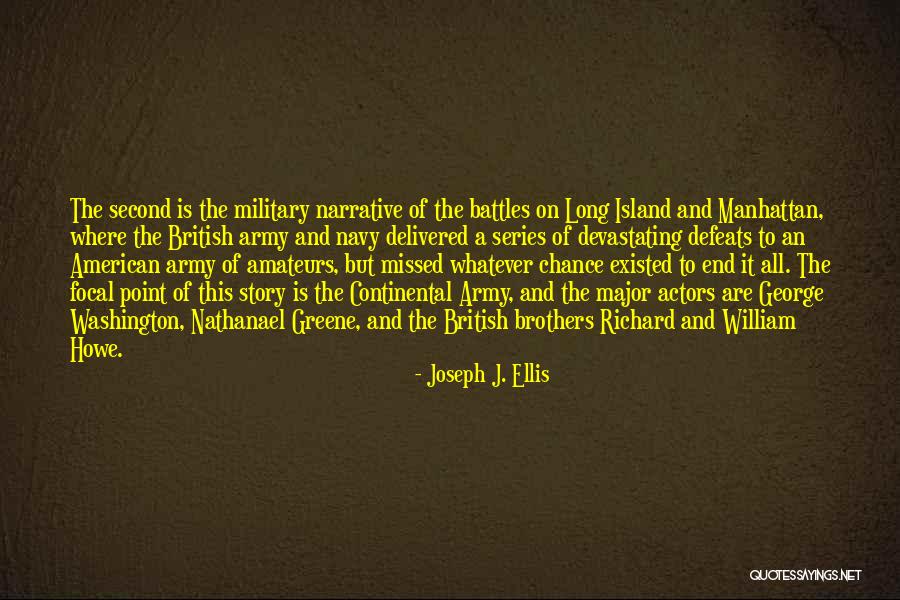
The second is the military narrative of the battles on Long Island and Manhattan, where the British army and navy delivered a series of devastating defeats to an American army of amateurs, but missed whatever chance existed to end it all. The focal point of this story is the Continental Army, and the major actors are George Washington, Nathanael Greene, and the British brothers Richard and William Howe. — Joseph J. Ellis

I fought to stay awake and keep the car on the road. And I thought back to texts I had read from the British Army in India, during the Raj, at the height of their empire. Young subalterns trapped in junior ranks had their own mess. They would dine together in splendid dress uniforms and talk about their chances of promotion. But they had none, unless a superior officer died. Dead men's shoes was the rule. So they would raise their crystal glasses of fine French wine and toast "bloody wars and dread diseases" because a casualty further up the chain of command was their only way to get ahead. Brutal, but that's how it's always been, in the military. — Lee Child
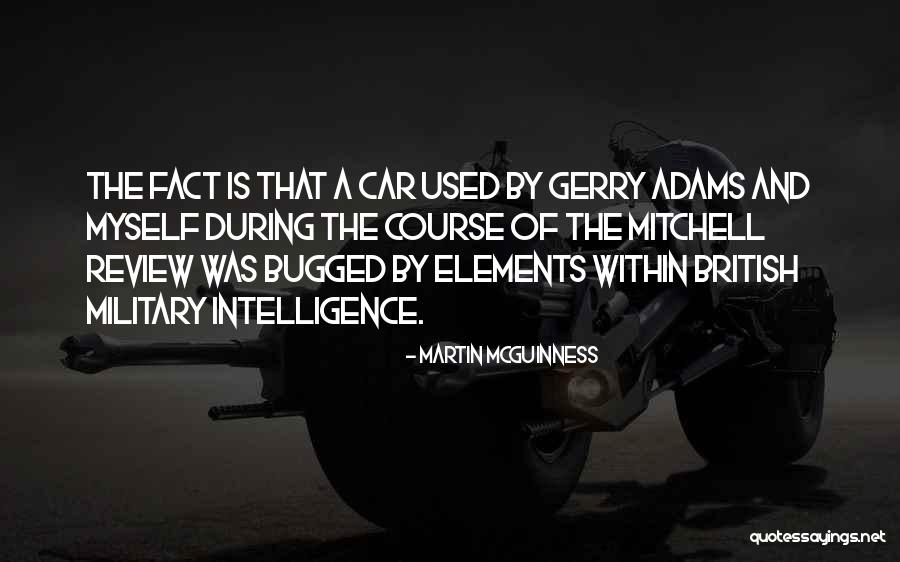
The fact is that a car used by Gerry Adams and myself during the course of the Mitchell review was bugged by elements within British military intelligence. — Martin McGuinness





